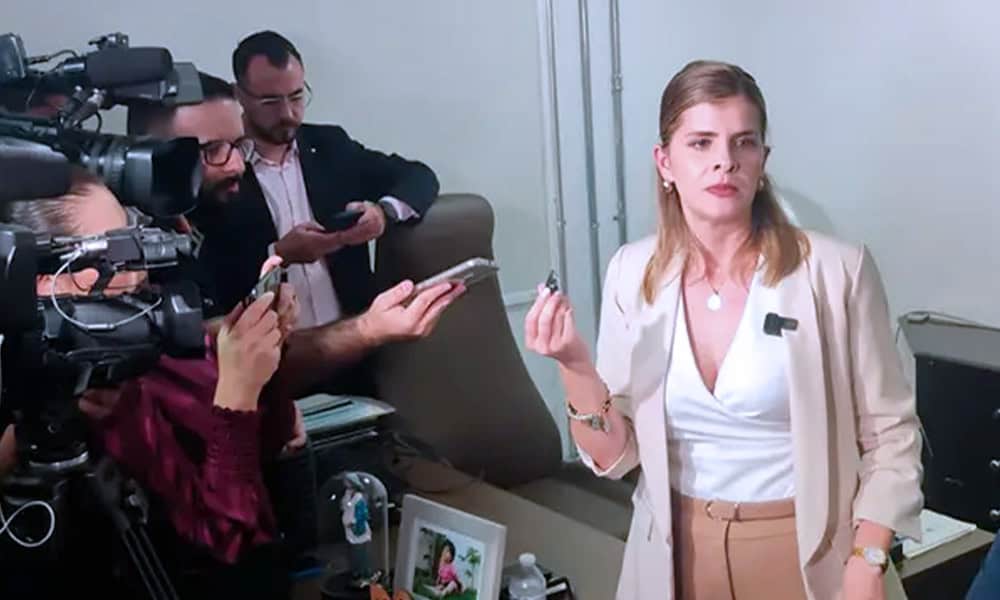Laura Fernández, the presidential candidate for the Pueblo Soberano party, revealed on Tuesday that she discovered a concealed microphone in her personal office, raising alarms about possible political spying ahead of Costa Rica’s elections.
Fernández called reporters to an emergency press conference in Pavas, where she detailed the find. She explained that a tip prompted her to hire an international security firm for a full sweep of her office, home, and vehicle. The team located the device hidden inside an electrical outlet in her workspace.
“This hits hard as a Costa Rican and as someone running for president,” Fernández said during the briefing. She held up the small gadget, calling it advanced technology not easily available locally, priced around $3,000, with its own battery, internet link, and voice trigger.
She expressed outrage over the breach. “People talked strategy and personal stuff in that room,” she added. “Planting bugs like this in a outlet shows how low some will go in a campaign.”
Fernández pointed fingers at rivals without naming them or showing proof, insisting the act aimed to eavesdrop on her plans. She dismissed any chance that someone from her own team placed it, citing strong loyalty within her group.
The candidate confirmed she would file a formal complaint with the Judicial Investigation Agency (OIJ) that same day. By afternoon, she had submitted the report, though OIJ officials have not yet commented on the case.
Reactions came quickly from opponents. Gilberto Campos, a lawmaker from the Progressive Liberal Party, dismissed the claim as overblown. He argued that proper protocol demands contacting authorities first to preserve evidence, not alerting the media and risking tampering.
“If you spot something like this, you secure the site and let OIJ handle prints and samples,” Campos said. “Calling a press event first breaks the chain and looks like a stunt.” Other voices echoed doubt. Some online commentators labeled the episode a “political show” or a staged move, questioning why Fernández handled the device publicly before investigators arrived.
One detail emerged about the office location: the building belongs to an individual linked to a past social media post from 2023 that suggested gifting public workers power strips with built-in mics. This raised questions about access and consent, though no direct ties to the incident have surfaced.
Fernández stood firm in follow-up statements, recounting how the security scan unfolded. She said the firm checked every corner, and the mic stood out due to its sophisticated setup. Despite the setback, she vowed to press on with her campaign, focusing on transparency and public trust.
This event unfolds as Costa Rica gears up for its presidential vote, with Fernández positioning herself as a defender of sovereignty and against outside interference. Her party, Pueblo Soberano, pushes for stronger national control in policies, drawing both support and criticism.
The OIJ now holds the device for analysis. Experts say such tools can transmit audio remotely, but confirming origins requires forensic work. No arrests or further leads have been announced.
As the story develops, it highlights tensions in the race. Candidates face scrutiny over tactics, and this claim adds fuel to debates on fair play in politics. Fernández’s team plans no immediate changes to security but urges vigilance among all contenders.






